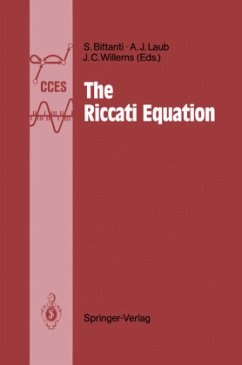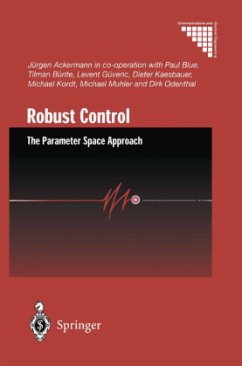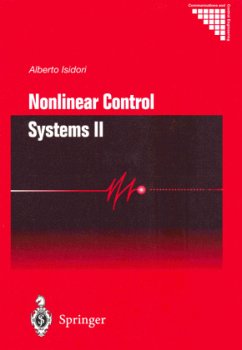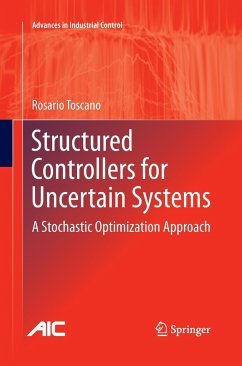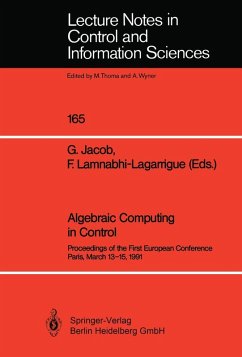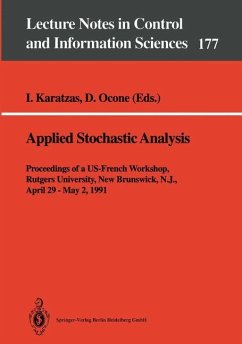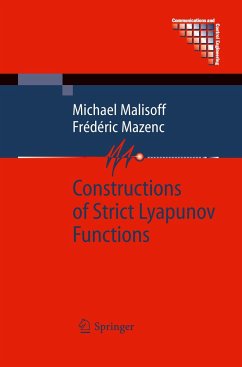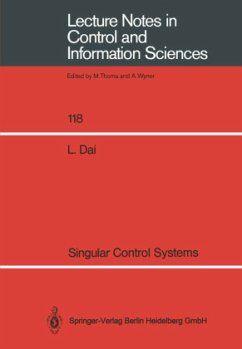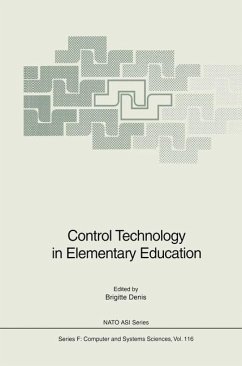
Randomized Algorithms for Analysis and Control of Uncertain Systems
With Applications
Versandkostenfrei!
Versandfertig in 6-10 Tagen
113,99 €
inkl. MwSt.
Weitere Ausgaben:

PAYBACK Punkte
57 °P sammeln!
The presence of uncertainty in a system description has always been a critical issue in control. The main objective of Randomized Algorithms for Analysis and Control of Uncertain Systems, with Applications (Second Edition) is to introduce the reader to the fundamentals of probabilistic methods in the analysis and design of systems subject to deterministic and stochastic uncertainty. The approach propounded by this text guarantees a reduction in the computational complexity of classical control algorithms and in the conservativeness of standard robust control techniques. The second edition has ...
The presence of uncertainty in a system description has always been a critical issue in control. The main objective of Randomized Algorithms for Analysis and Control of Uncertain Systems, with Applications (Second Edition) is to introduce the reader to the fundamentals of probabilistic methods in the analysis and design of systems subject to deterministic and stochastic uncertainty. The approach propounded by this text guarantees a reduction in the computational complexity of classical control algorithms and in the conservativeness of standard robust control techniques. The second edition has been thoroughly updated to reflect recent research and new applications with chapters on statistical learning theory, sequential methods for control and the scenario approach being completely rewritten.
Features:
· self-contained treatment explaining Monte Carlo and Las Vegas randomized algorithms from their genesis in the principles of probability theory to their use for system analysis;
· development of a novel paradigm for (convex and nonconvex) controller synthesis in the presence of uncertainty and in the context of randomized algorithms;
· comprehensive treatment of multivariate sample generation techniques, including consideration of thedifficulties involved in obtaining identically and independently distributed samples;
· applications of randomized algorithms in various endeavours, such as PageRank computation for the Google Web search engine, unmanned aerial vehicle design (both new in the second edition), congestion control of high-speed communications networks and stability of quantized sampled-data systems.
Randomized Algorithms for Analysis and Control of Uncertain Systems (second edition) is certain to interest academic researchers and graduate control students working in probabilistic, robust or optimal control methods and control engineers dealing with system uncertainties.
The present book is a very timely contribution to the literature. I have no hesitation in asserting that it will remain a widely cited reference work for many years.
M. Vidyasagar
Features:
· self-contained treatment explaining Monte Carlo and Las Vegas randomized algorithms from their genesis in the principles of probability theory to their use for system analysis;
· development of a novel paradigm for (convex and nonconvex) controller synthesis in the presence of uncertainty and in the context of randomized algorithms;
· comprehensive treatment of multivariate sample generation techniques, including consideration of thedifficulties involved in obtaining identically and independently distributed samples;
· applications of randomized algorithms in various endeavours, such as PageRank computation for the Google Web search engine, unmanned aerial vehicle design (both new in the second edition), congestion control of high-speed communications networks and stability of quantized sampled-data systems.
Randomized Algorithms for Analysis and Control of Uncertain Systems (second edition) is certain to interest academic researchers and graduate control students working in probabilistic, robust or optimal control methods and control engineers dealing with system uncertainties.
The present book is a very timely contribution to the literature. I have no hesitation in asserting that it will remain a widely cited reference work for many years.
M. Vidyasagar





